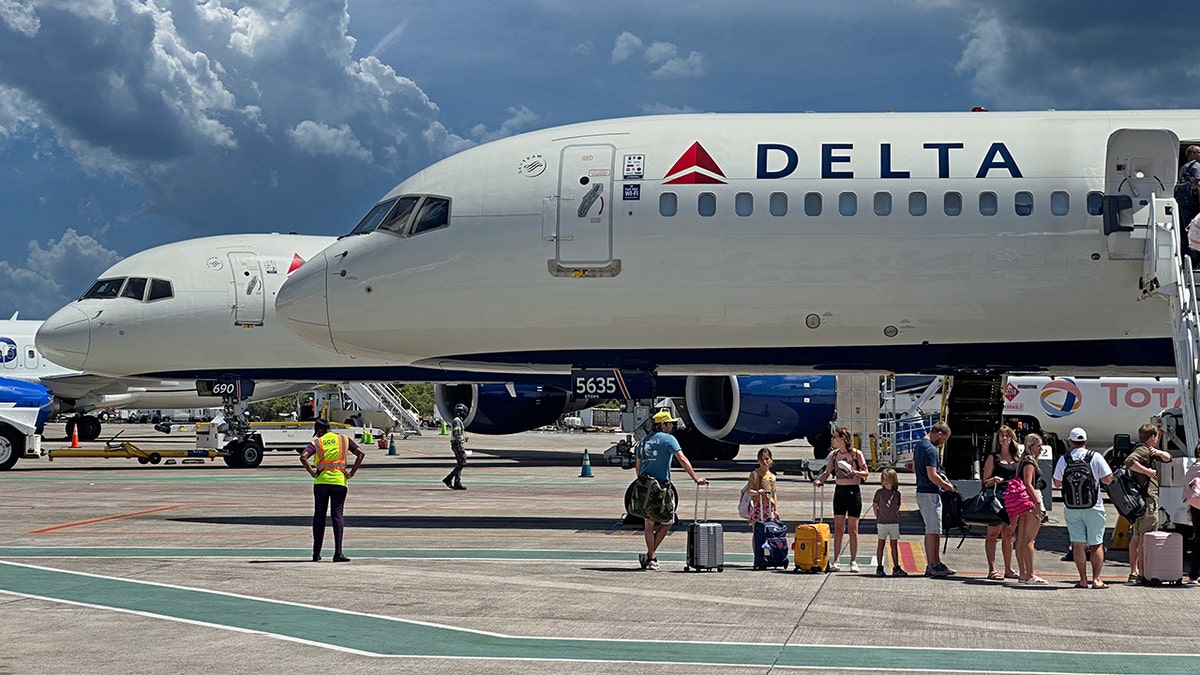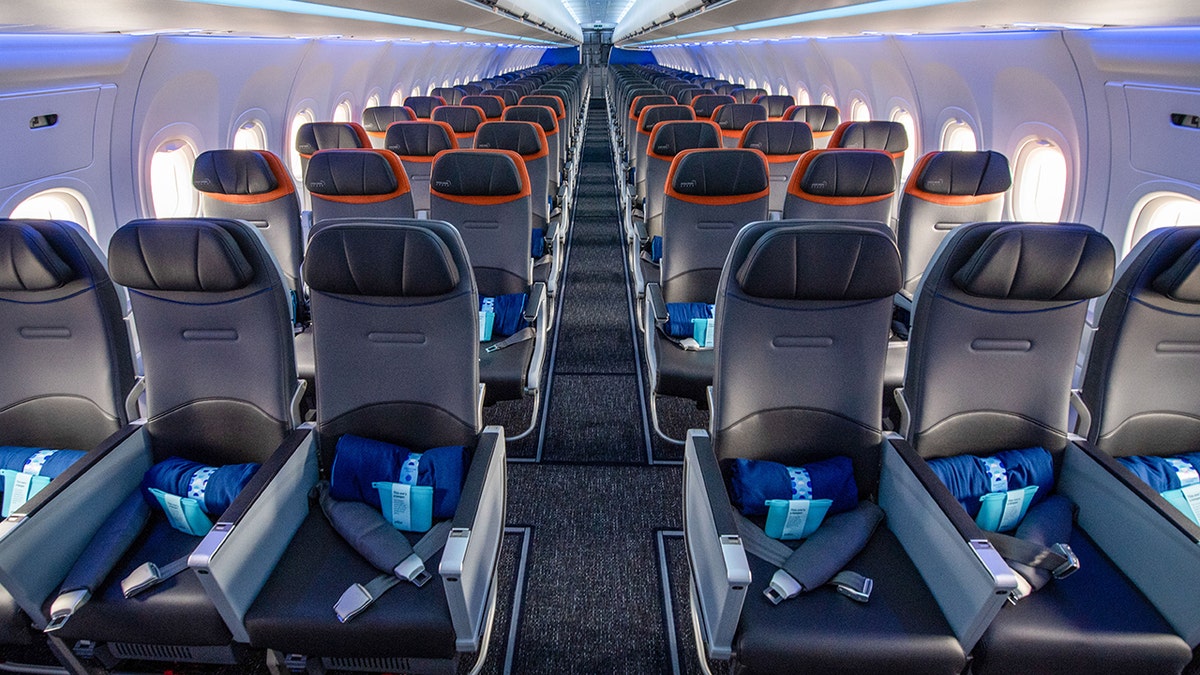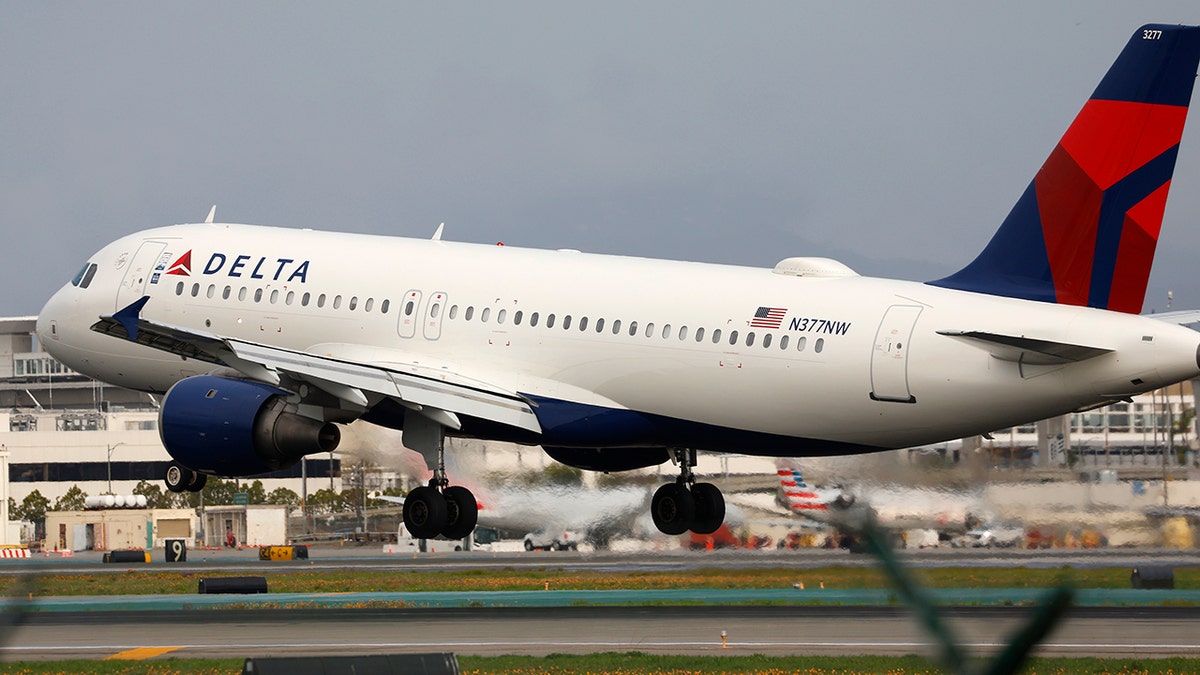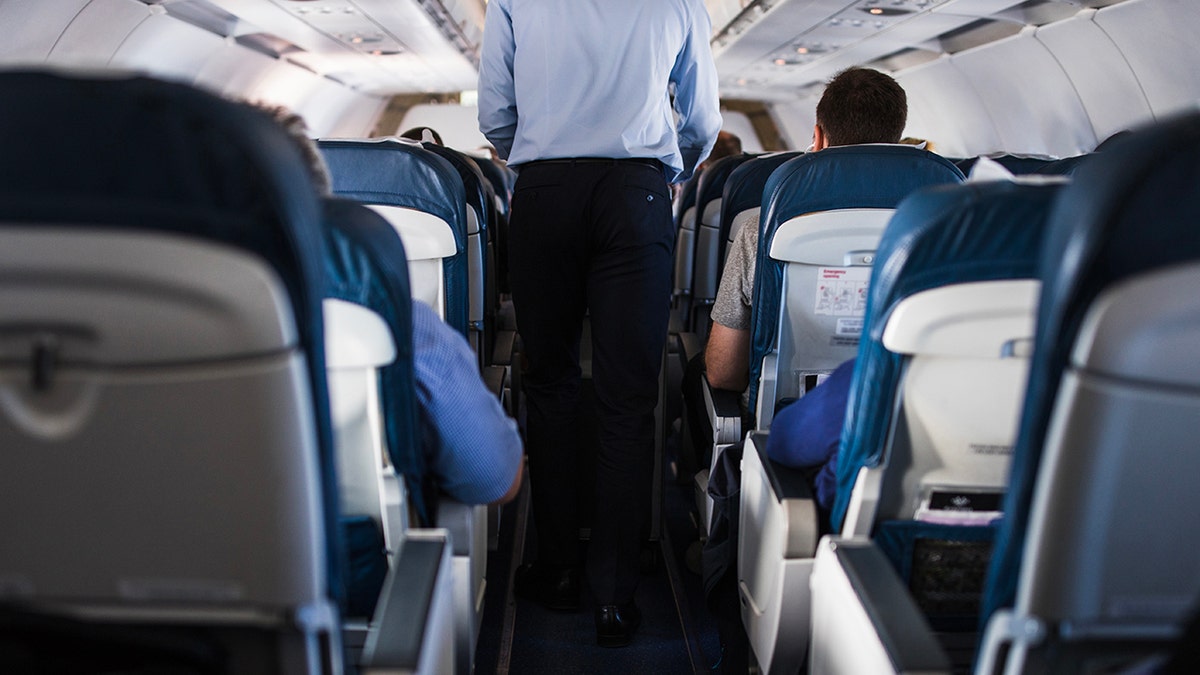

Delta Air Lines is replacing certain engines on more than 300 of its Airbus planes after toxic fume incidents contaminated cabin air and sickened crew members and passengers, according to reports.
The airline has been swapping out auxiliary power units (APUs) — small engines that are located in the back of planes — since 2022, The Wall Street Journal reported Thursday.
The units supply electricity and cabin air when the main engines aren’t running and do not provide propulsion for flight. Delta says the work on its A320 jets is now about 90% complete.
AIRLINES TOLD TO REEVALUATE EMERGENCY EVACUATION PROCEDURES AFTER CARRY-ON CONCERNS
Faulty APUs can leak oil into the plane’s airflow system, allowing toxic fumes and odors to spread through the cabin, potentially even when the units aren’t running.
Airbus has acknowledged the APU design as a leading factor in these incidents, though other engines on the plane can also leak oil.

Planes such as the Boeing 737, above, use auxiliary power units that can sometimes leak fumes into cabin air. (iStock)
Toxic air events for Delta and other U.S. carriers have surged in recent years, especially on Airbus 320-family jets, the Journal reported earlier this month. The fumes have been linked to brain injuries and other health problems among crew members and passengers, and have caused diverted and aborted flights. Some pilots even needed oxygen masks.
One JetBlue flight attendant developed a traumatic brain injury resembling an NFL-style concussion after inhaling toxic fumes that she said smelled distinctly of "dirty feet" while en route to Puerto Rico.
PASSENGER JET ABORTS BOSTON TAKEOFF AFTER FLAME AND SMOKE SPEW FROM ENGINE
Florence Chesson said she felt like she was drugged after taking a deep breath when her colleague asked if she smelled something. "I felt like I was talking gibberish," she told the Journal. "I remember being very repetitive, saying, ‘What just happened to me? What just happened to me?’"
In February, a Delta flight aboard a Boeing 717 filled with thick white smoke pouring in through the vents. An investigation later found that so much oil had leaked from one of the engines that it left the reservoir nearly empty.

Three former employees are suing various airlines for toxic fume events between 2022 and 2024. (Chris J. Ratcliffe/Bloomberg via Getty Images)
A lawsuit filed Sept. 3 by three former JetBlue flight attendants, meanwhile, accuses the airline, Airbus and APU supplier Honeywell of allowing noxious fumes to leak into the cabin between 2022 and 2024, as the Journal also reported.
DELTA PLANE ABORTS TAKEOFF IN MEXICO CITY AFTER PLANE NEARLY LANDS ON TOP OF AIRCRAFT
The suit claims the exposure caused lasting health effects including tremors, heart palpitations and memory issues. In one 2022 incident, a child had a nosebleed and four crew members ended up in the hospital.
Not every event is reported, and airlines use different standards for alerting the Federal Aviation Administration.
The companies named in the suit have not yet responded publicly. Fox News Digital reached out to JetBlue for comment.
Industry data suggests it’s hard to know exactly how widespread the issue is, since not every event is reported, and airlines use different standards for alerting the Federal Aviation Administration.
Internal records show that manufacturers and regulators have known about seal problems in APUs for decades. Honeywell and Pratt & Whitney, two of the biggest suppliers, have faced problems with A320-family models, particularly with seals designed to prevent oil from entering the air supply, as the Journal reported.

An auxiliary power unit (APU) is a small engine that provides electricity and air to an aircraft when the main engines are off. (Kevin Carter/Getty Images)
The companies have issued multiple fixes over the years and Honeywell rolled out another update in 2023 that it said would improve passenger experience by reducing odor events.
A similar version of Honeywell’s APU is also used on Boeing’s 737 family of jets. American Airlines, meanwhile, began upgrading Honeywell APU seals in April 2023.
Honeywell and Pratt & Whitney did not comment on the Journal’s reporting.
Replacing older APUs can reduce the risk of leaks but does not completely solve the problem, experts told the Journal. The plane’s main engines, which also pump pressurized "bleed air" into the cabin, can leak oil as well.

Oil fumes in cabins have been a problem for decades, according to reports. (iStock)
Airbus has found that most APU-related fume events are caused by oil or fluids entering through the air inlet.
Its proposed long-term fix includes moving the inlet to the top of the aircraft and would reduce "smell" events by 85%, but would only be done in new planes.
Fox News Digital reached out to Delta and Airbus for comment.
In statements, Delta said fume events are rare, but that it takes them seriously.
A spokesperson also told Fox News Digital, "Other than to reiterate that safety comes before all else at Delta, Delta has no additional comment or guidance at this time."
Airbus reiterated to the Journal that its aircraft meet regulatory requirements and said it continues to work with airlines and regulators to "enhance its aircraft and ensure the best possible cabin environment for passengers and crew."
